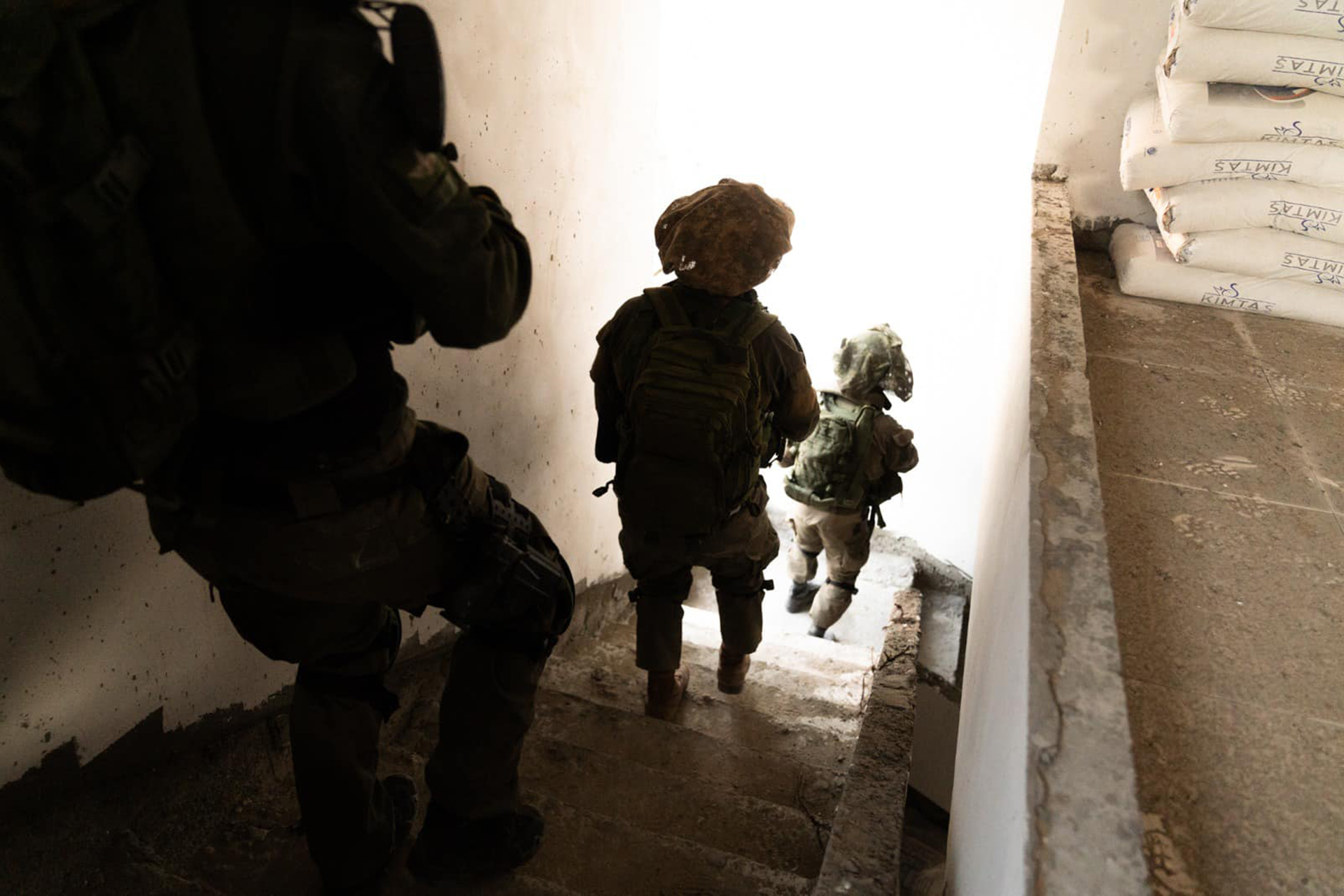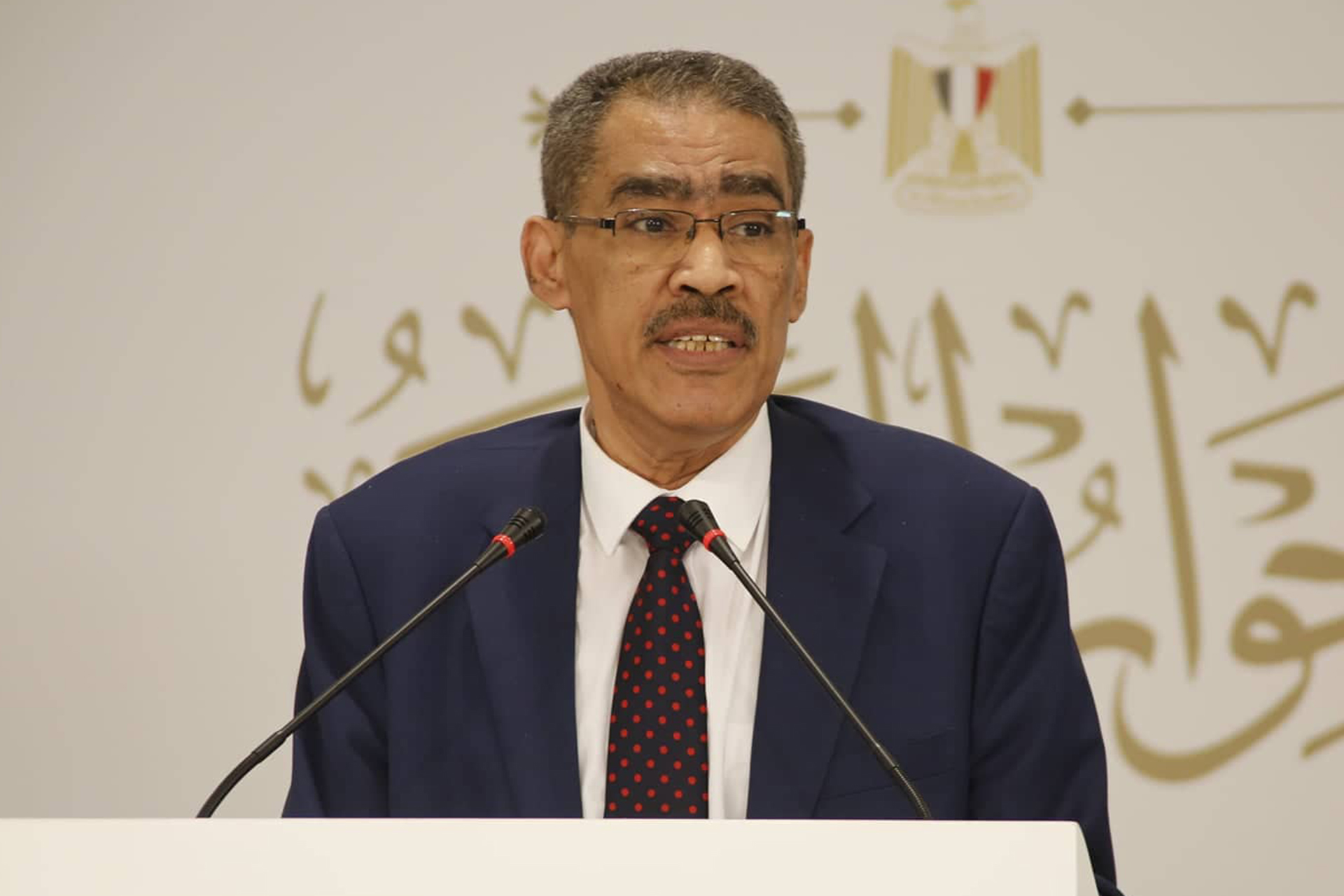Occupied Jerusalem– In a reality that reflects the state of confusion you are experiencing Israel As the war on Gaza continued, the scenes of the bombings in Khan Yunis, which resulted in the killing of 24 Israeli soldiers and officers, brought back to the Israeli collective memory once again the shock of the battle.Al-Aqsa flood“, despite the attempt to frame the fragile state of unity, and to cover up the differences, polarization, and rifts in Israeli society.
Faced with the horror of the bombings in Khan Yunis, which, according to initial Israeli estimates, resulted from a military operational failure and failure and the success of the resistance in ambushing the Israeli forces, the Prime Minister quickly, Benjamin Netanyahu، Accompanied by the Minister of Security, Yoav Galant And the minister Benny Gantz، To a joint briefing to the media in a message aimed at covering up the differences and tensions in the war council and the emergency government.
In anticipation of any controversy and accusations of failure and operational failure that the Israeli street may witness, the divided Israeli political leaders agreed on the necessity of continuing the war on Gaza, and emphasizing that the blood of soldiers must not be in vain, and that the war will determine the future of Israel, in a tone that carried with it the reinforcement of Feelings of revenge for the dead soldiers and officers, similar to the approach that followed the “Al-Aqsa Flood.”
Scissors Sergeant
With the continuation of battles and the massive human losses being circulated in video clips on social media, the Israeli military censor’s scissors have become unable to adopt the approach of ambiguity and secrecy regarding the death toll of Israeli soldiers and officers, as the announced death toll of military personnel has reached 556 since October 7, 2023. .
These unprecedented military human losses come at a time when the Israeli army has begun the third phase of the war, which focuses on encircling and besieging Khan Yunis and isolating it from the rest of the governorates of the Gaza Strip, amid the expectation of more losses of soldiers and officers as the fighting and incursion into the Gaza Strip continues, according to analysts’ estimates.
In light of these estimates, the military leadership realizes that any understanding with the Islamic Resistance Movement “agitation“The exchange deal has become more complicated, while the political level has seemed more harmonious regarding the continuation of the fighting for fear of deviating from the Israeli consensus supporting the war, amid the massive human losses that can no longer be concealed in light of their documentation by Palestinian resistance factions and media cameras in the Gaza Strip.
Difficulty of combat
Political analyst, Amir Bar Shalom, believes that despite the difficult results and heavy military losses, Israel does not intend to give up on encircling Khan Yunis, pointing out that the bombing incident that occurred in the Al-Mawasi refugee camp shows how difficult the ongoing fighting in the Strip is, especially when it comes to… The command is in Khan Yunis.
This is without a doubt, says Bar Shalom in an article published on the website “Zaman Yisrael”, “one of the most difficult events that the Gaza Strip has witnessed since the beginning of the ground incursion, and this incident reminds us of the Bureij Tunnel explosion 3 weeks ago, which was caused by an Israeli army tank firing a shell that exploded the explosive devices.” “Explosive.”
The same political analyst explained that since the tunnel bombing incident in Bureij, which resulted in the death of 6 soldiers, the Israeli army has changed a number of procedures in dealing with the squares and areas that will be booby-trapped and blown up, and has adopted more precautionary methods in the field, and used small military teams when carrying out tasks. Operational procedures, which are apparently not implemented.
Drawing lessons
Haaretz’s military affairs correspondent, Yaniv Kubowich, seemed more clear in his criticism of the military establishment, saying, “The killing of soldiers in the bombings during the operation to encircle Khan Yunis raises difficult questions, as the Israeli army will have to examine preparations for the mission.”
At this stage, the military correspondent says, “Questions arise about the behavior of the Israeli army, the forces present at the site of the bombing, the reason for allowing such a large number of soldiers to remain in a besieged building that will be blown up, and whether the necessary precautions were taken in addition to drawing lessons from the Bureij Tunnel explosion before “About two weeks as a result of tank fire.”
The military correspondent explained that the Israeli army will have to test its control over the area that is scheduled to become Israel’s new security zone, before returning residents to the settlements near the border, and also verify the place where an RPG shell was fired at the tank. Because it is an area where there is no fighting.
hard times
Despite questions pointing to operational failure and the failure to draw lessons from previous incidents, Ynet’s military affairs analyst, Yossi Yehoshua, mobilized to defend the military establishment.
The military affairs analyst justified the continuation of the fighting in the Gaza Strip in isolation from the debate over the failure to achieve the war’s goals, which are to eliminate Hamas politically and militarily and recover detainees through a military operation and without an exchange deal.
Yehoshua explained that Israeli society woke up, on Tuesday morning, to one of the most difficult events it had ever known during the fighting and ground incursion into the Gaza Strip, which was equivalent to the shock of the sudden attack on “Black Saturday.”
He pointed out that in such events and the great loss of life, the public searches for answers to the reasons that led to the bombings, but adds, “In such difficult times, it is important to separate the truth from all kinds of stories and shuffling of cards.”
War option
In his justifications, the same military analyst returned to the battle of “Al-Aqsa Flood,” saying that “the essence of the war on Gaza aims to prevent any future attack on the south, and therefore the Israeli army is working to create a buffer zone in Gaza strip To prevent a recurrence of the events of the surprise attack carried out by Hamas.”
The same proposition was adopted by the military analyst for the Israeli Channel 12, Nir Devuri, who said, “The fatal incident that occurred in the southern Gaza Strip reminds us of how difficult and brutal the fighting in Gaza is. However, even when such a painful price is imposed on us, we must remember What happened to us on October 7?
On that “Black Saturday,” Dvory says, “a crime was committed against Israel and its residents around Gaza and the south, and about 240 civilians and soldiers were captured. The sudden attack is the birth and impetus for military action. We are in the midst of an operation with no choice, in the face of what they did to us. Despite “Because the reality is difficult, complex and harsh, we simply have no choice but war.”
He concluded by saying, “We must demand that our leadership define and direct exactly what it wants, so that the goals can be reached and this war can be ended. We must do this in a clear way, not only towards the people of Gaza, but to all our other enemies around us so that no one dares to do what I did.” We built Hamas on October 7th.”






